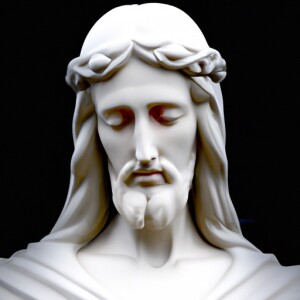
In the 19th and 20th centuries, religious groups in the United States underwent significant transformations in response to the challenges posed by modernity. Protestants, Catholics, and Jews all experienced shifts in their beliefs and actions, embracing more progressive ideas and adapting to the changing world.
Protestants played a crucial role in advocating for social change during the early 20th century. One notable movement, known as the Social Gospel, aimed to improve society and was deeply influenced by a new Protestant perspective. This movement interpreted biblical prophecies as a gradual process, believing that Jesus’ return would usher in an era of peace and prosperity (“The Social Gospel Movement”). By placing Jesus as a role model, evangelic liberals envisioned the potential for positive change in individuals (“The Social Gospel Movement”). These beliefs arose in response to the social issues of the time, such as worker’s rights, immigrant exploitation, and government corruption. Protestants united in their pursuit of meaningful social transformation.
Catholicism, often perceived as a conservative religion, also underwent significant changes to adapt to the modern world. One notable example is the increasing acceptance of gay marriage within Catholicism. While the Catholic Church does not officially support same-sex marriage, there has been a growing vocal support within the Catholic laity. Organizations like Catholics for Marriage Equality have emerged to advocate for this cause (“Stances of Faiths on LGBTQ Issues: Roman Catholic Church”). Pope Francis himself made headlines with his famous quote, “If a person is gay and seeks God and has good will, who am I to judge?” (“Pope Francis: Who am I to judge gay people?”). These progressive steps reflect a shift in Catholic views, as the Church strives to be more inclusive and compassionate.
Moreover, Catholicism has also embraced aspects of modern consumer culture. The commercialization of holy items associated with the Catholic faith has become more prevalent. For instance, the sale and utilization of Lourdes water among American Catholics has been examined as a manifestation of “material Christianity” (“Religion ‘In the Street’ and ‘Material’ Christianity”). Although the selling of indulgences in the past tarnished the Church’s reputation, the acceptance of consumer culture in the West has led to the acceptance of practices like selling Lourdes water. This divergence from orthodox beliefs demonstrates how Catholicism has adapted to the modern world while navigating the complexities of capitalism and materialism.
Similarly, Jewish culture has also experienced shifts in response to modernity. Orthodox Jews, traditionally known for their adherence to religious traditions, have embraced more progressive worldviews compared to Hasidic Jews. One such worldview is the establishment of a Zionist nation. The Holocaust acted as a catalyst, sparking renewed enthusiasm for Zionism and the creation of a Jewish state in Palestine. Orthodox Jews, believing in God’s plan to restore Jews to Israel, sometimes view human intervention in establishing a Jewish state as interfering with divine providence (“The Holocaust”). This perspective is not shared by Hasidic Jews, an ultra-Orthodox sect, who hold different beliefs regarding the Messiah and the establishment of a Jewish state.
In conclusion, the reactions of religions to modernity in the United States have been diverse and dynamic. Protestants have championed social change, Catholics have adapted their views on issues like same-sex marriage and materialism, and Jews have experienced divergent interpretations of Judaism. These responses reflect the complex and evolving relationship between religion and the challenges posed by modernity.
